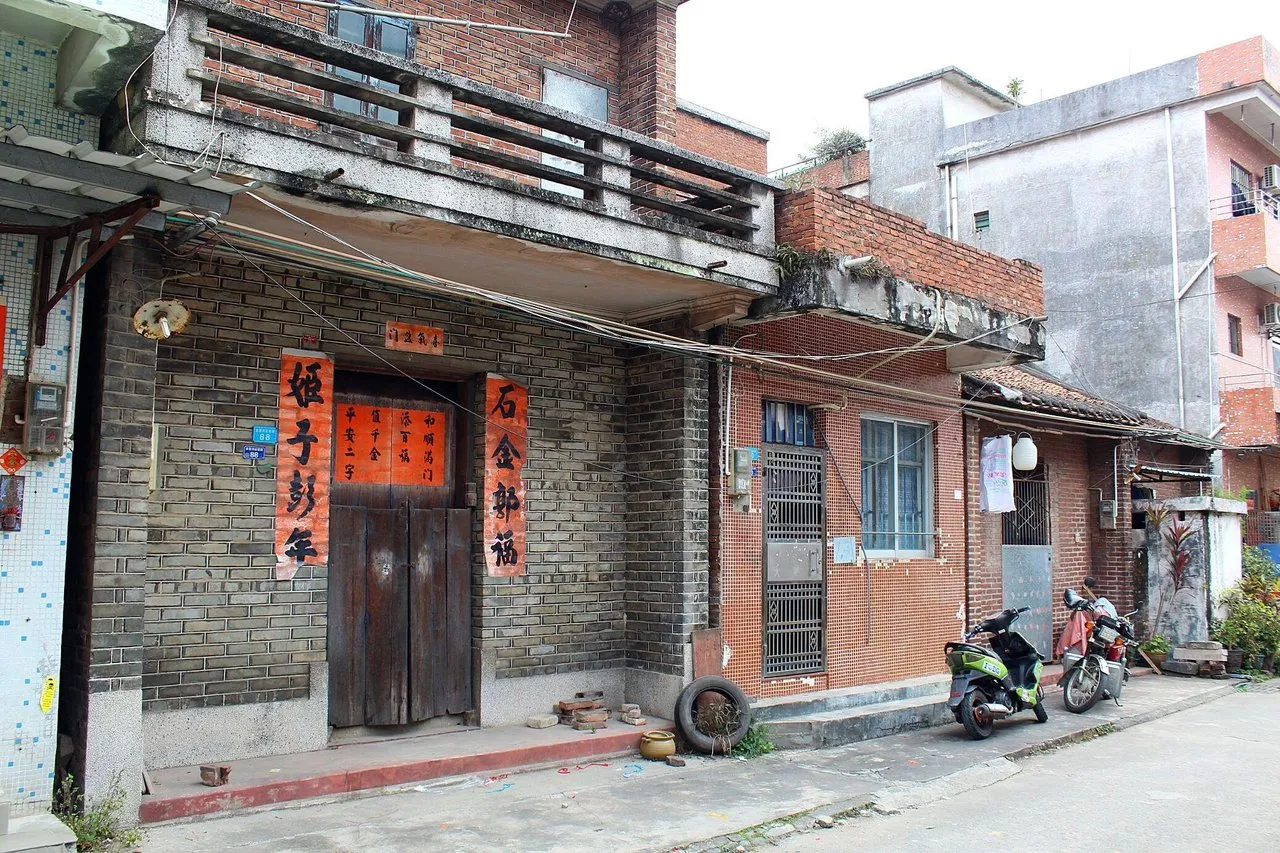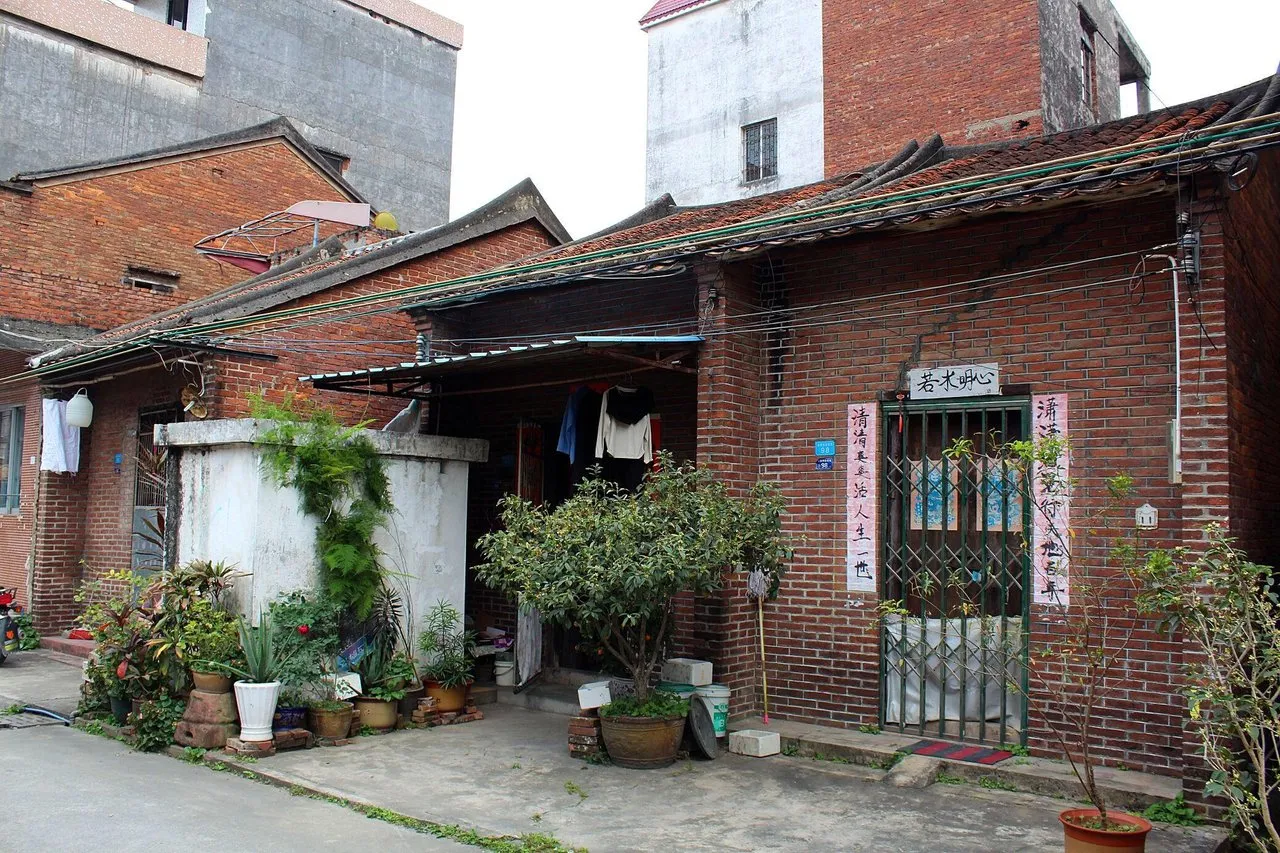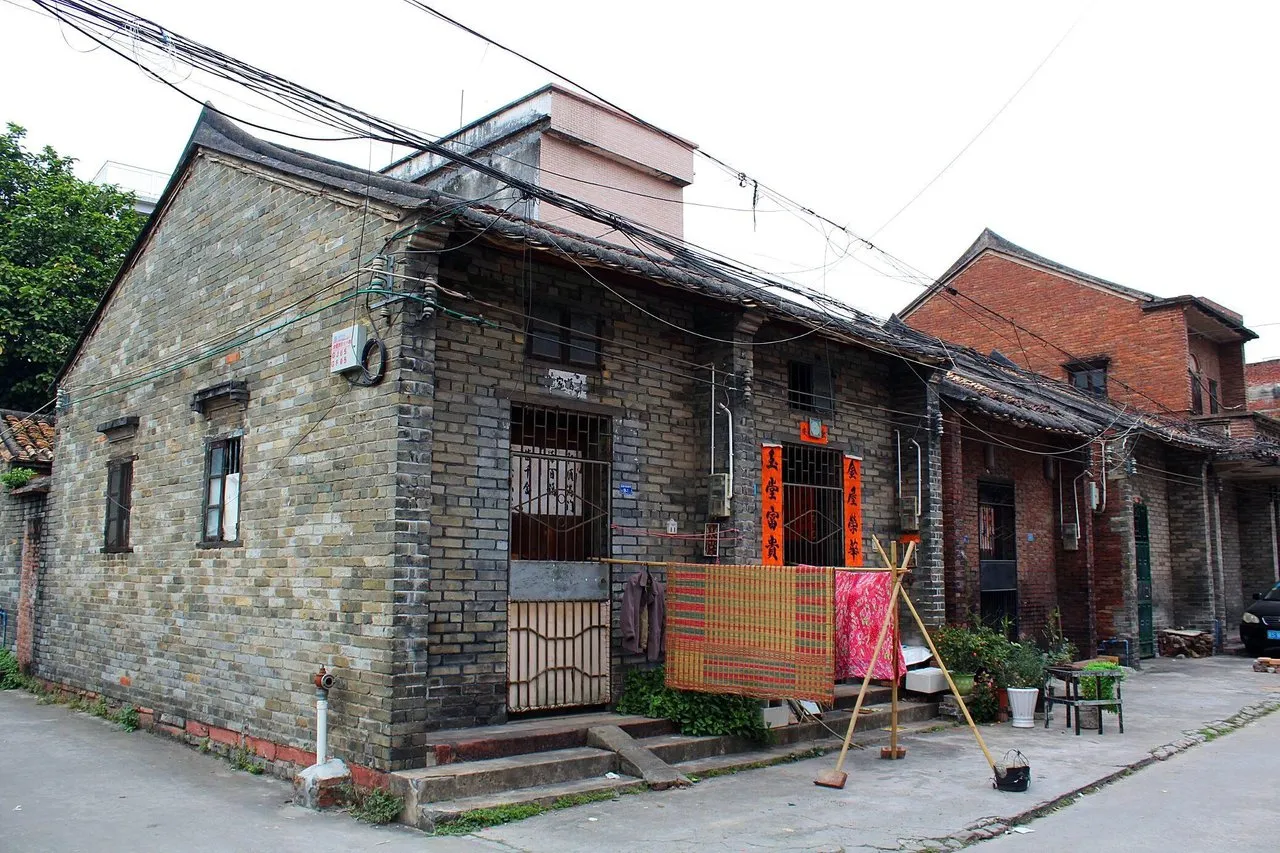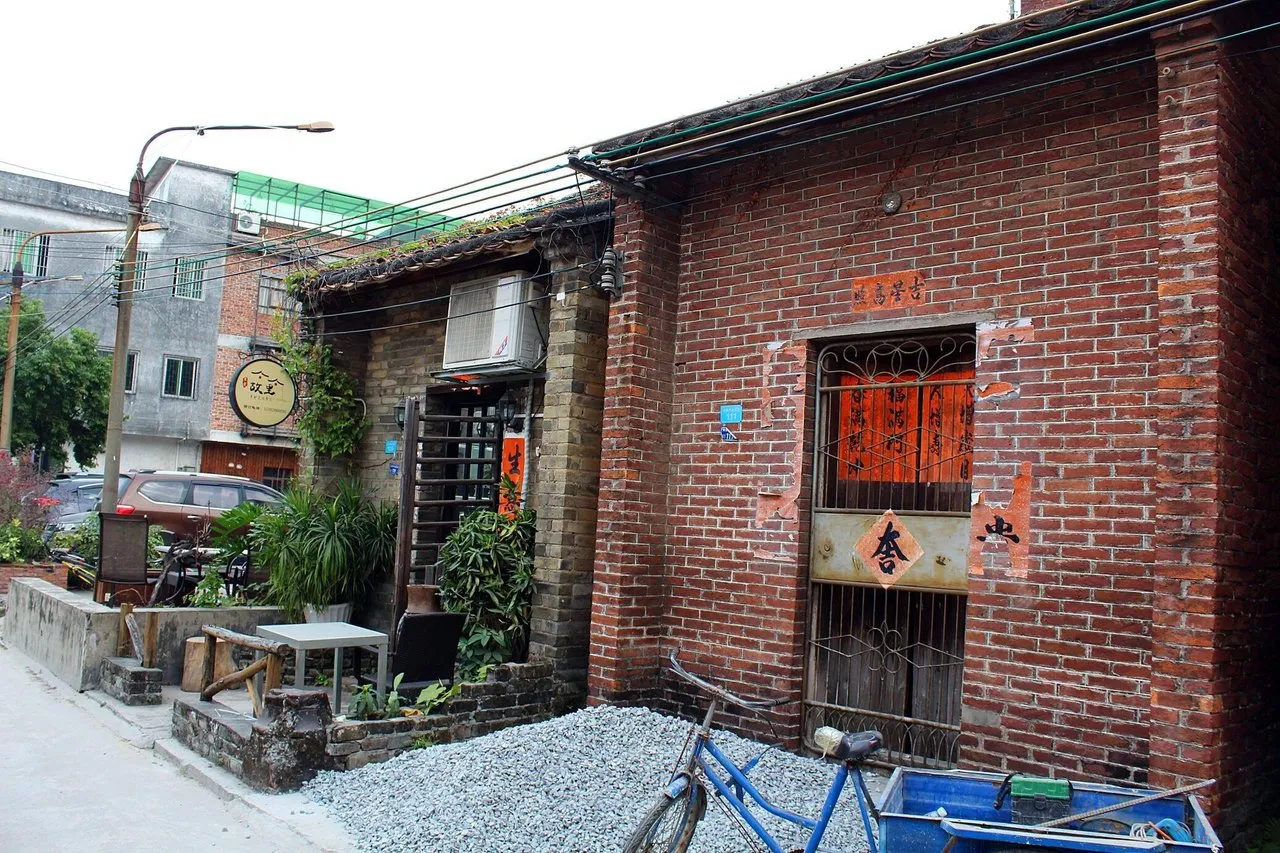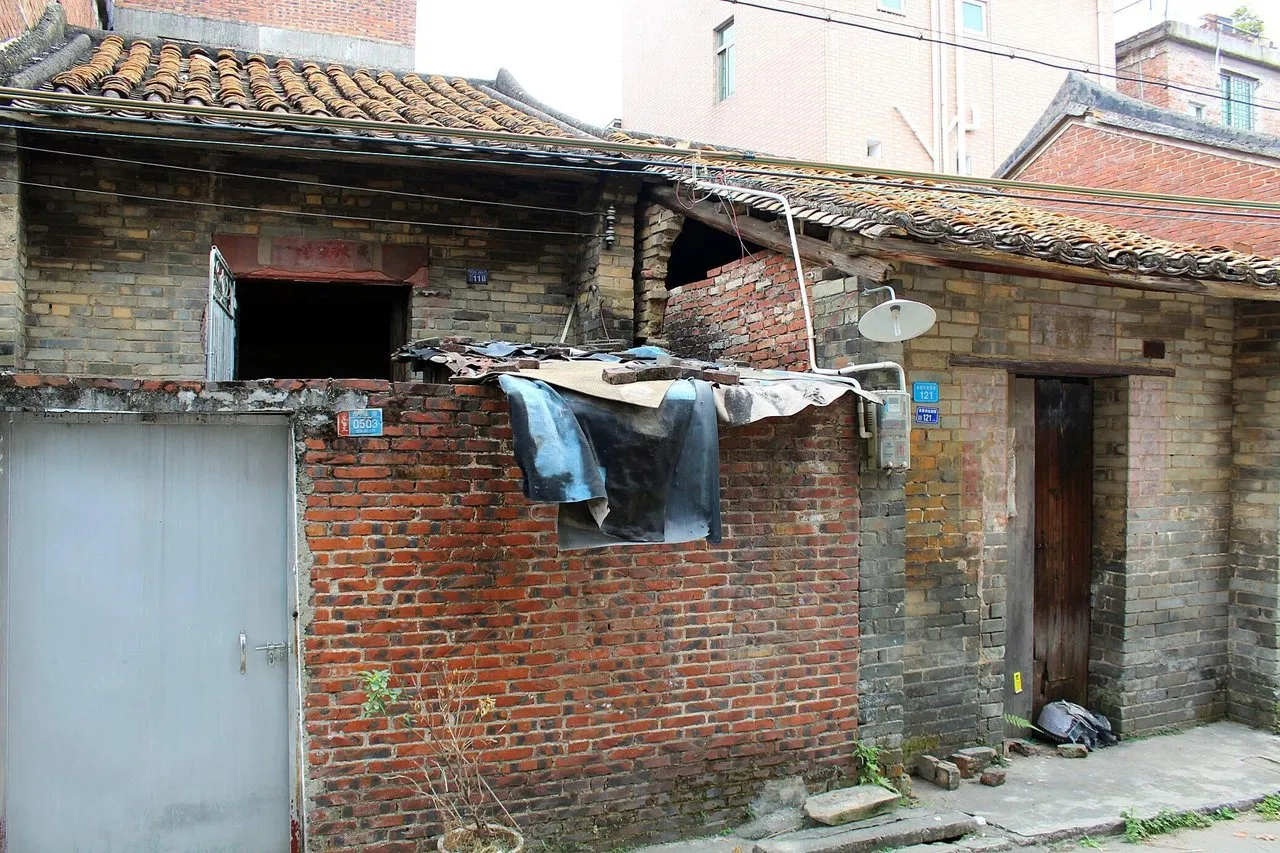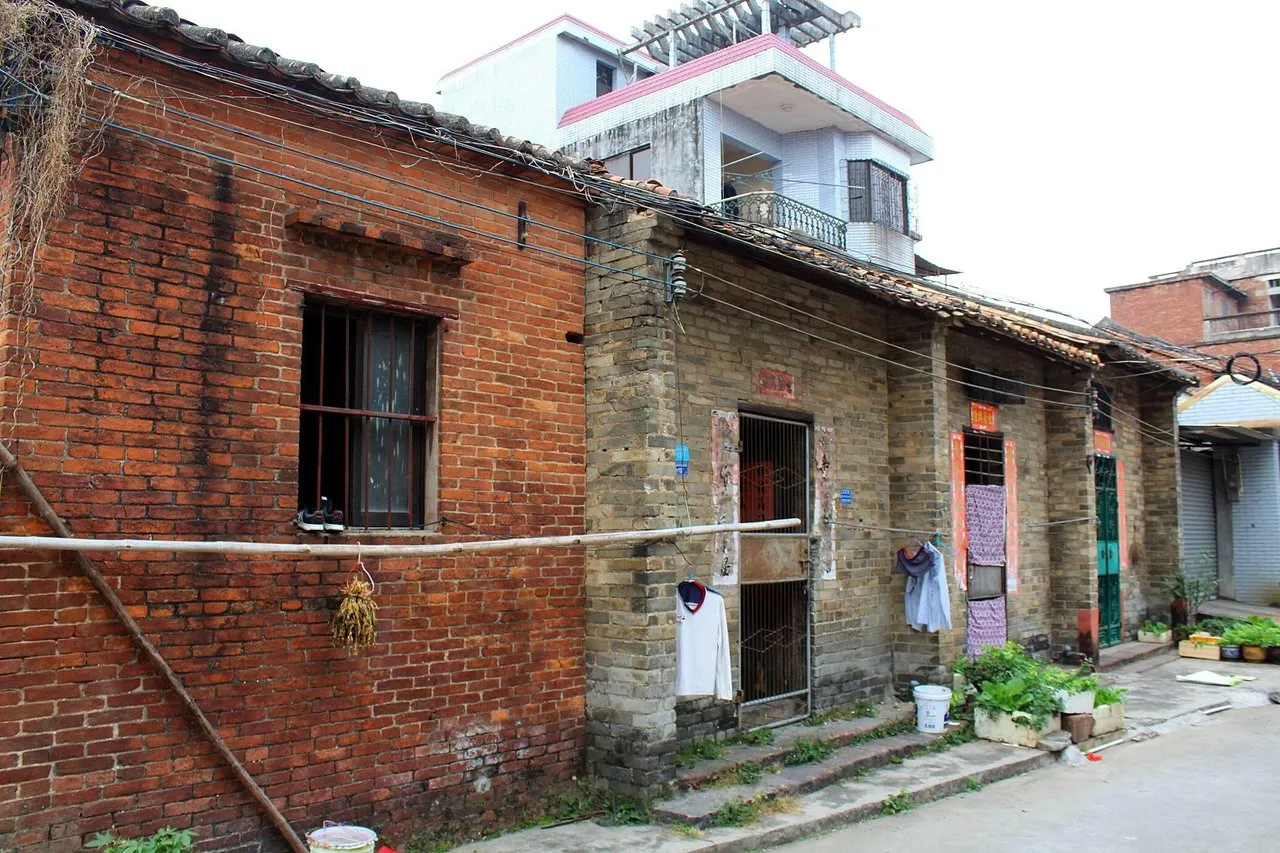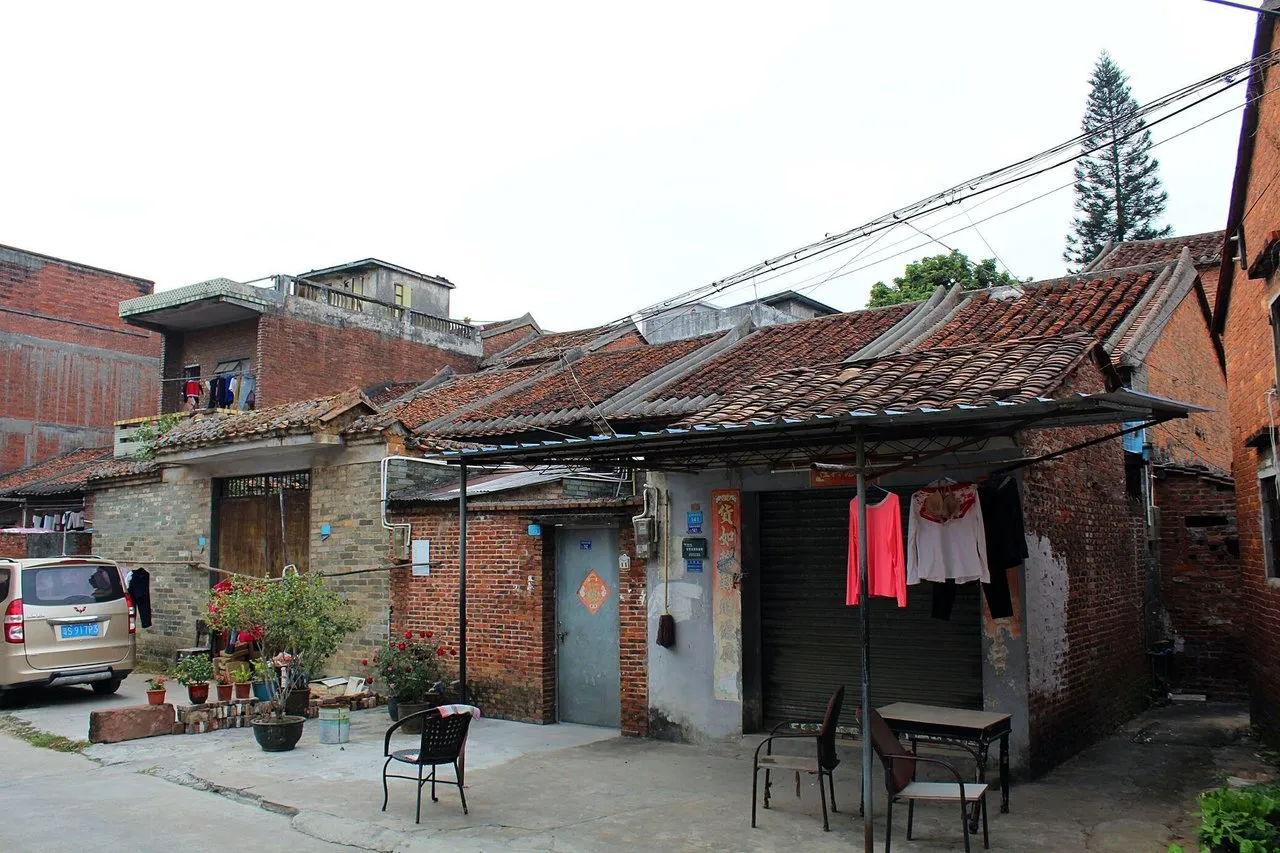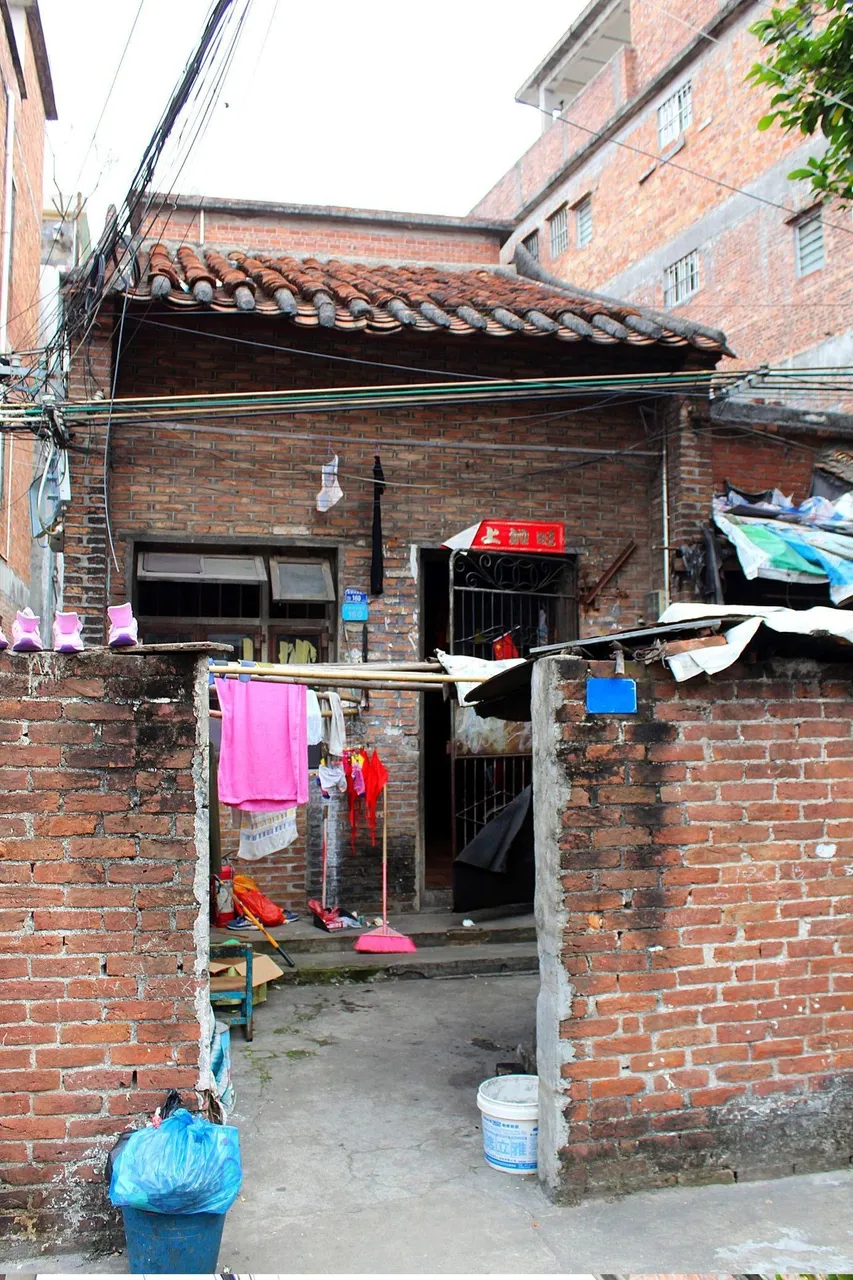| The old quarter of Wanjiang is located on the south bank of the Wanjiang River. It's essentially just a poorer part of Dongguan, not some touristy destination or of high cultural value. But that's what I like to see. Tourist traps may make some nice pictures, but they are not really "authentic". | Die Altstadt von Wanjiang befindet sich am Südufer des Wanjiang. Nunja, Altstadt. Eigentlich ist es nur ein ärmerer Teil Dongguans, keine Touristendestination & auch ohne Denkmalstatus. Aber gerade solche Gegenden sehe ich mir gerne an. Touristenfallen sind oft für schöne Bilder gut, aber in der Regel nicht sonderlich "authentisch". |
|---|
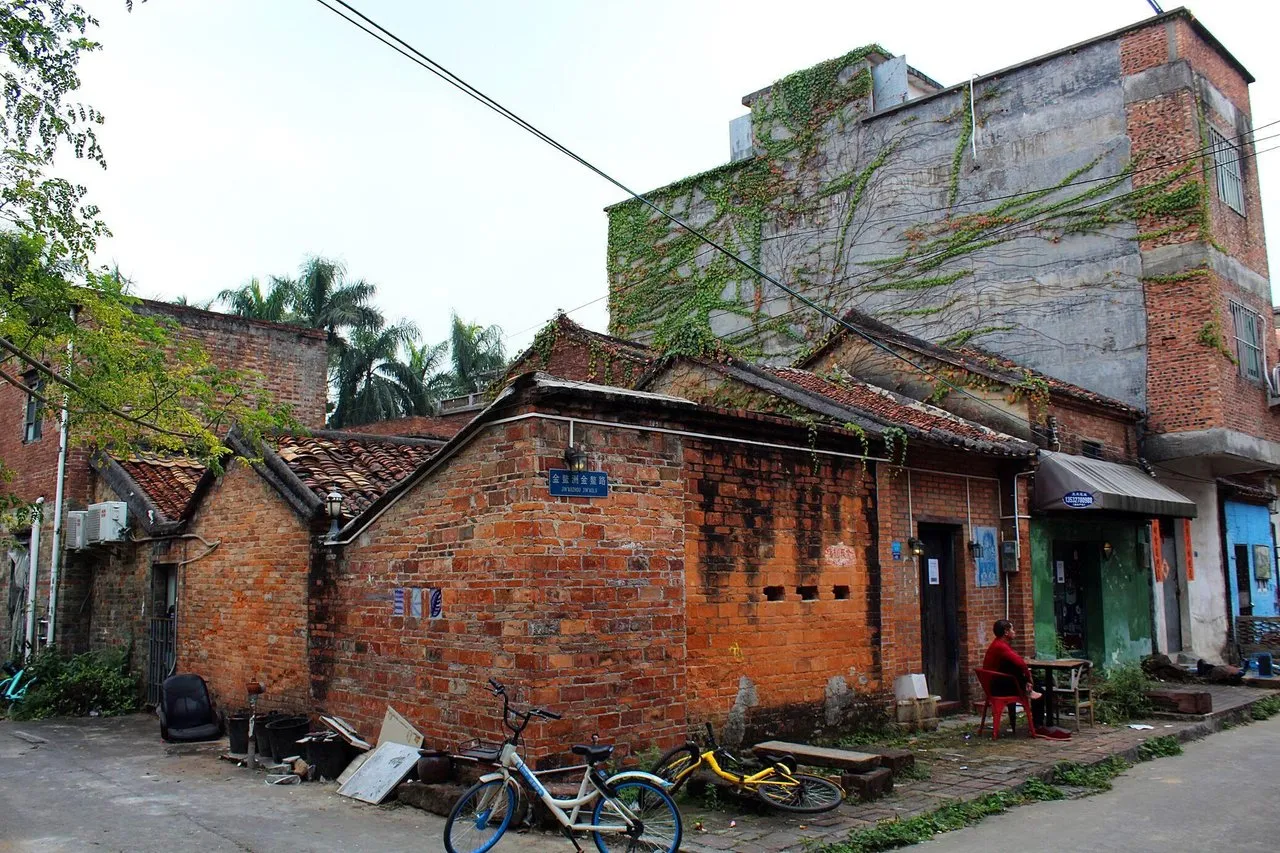
| That's for example the first building of the Jin'aozhou Jin'ao Lu, beside the decrepit temple I wrote about here. Isn't it ugly? No windows, tiny & I definitely wouldn't want to live in it. | Das ist z.B. das erste Gebäude auf der Jin'aozhou Jin'ao Lu, neben dem verfallenen Tempel, über den ich hier schon geschrieben habe. Häßlich, eh? Keine Fenster, winzig & bestimmt nichts, worin ich gerne wohnen würde. |
|---|---|
| Yet, that's how some poor people have to live. Even in other parts of Canton, that would be a pigsty at best. But, of course, that's not the norm, even in this delapidated part of town. | So müssen aber doch immer noch einige ärmere Leutchen leben. Selbst in anderen Gegenden Kantons wäre sowas bestenfalls ein Schweinestall. Das ist aber natürlich nicht die Norm, selbst in diesem, runtergekommenen Teil der Stadt. |
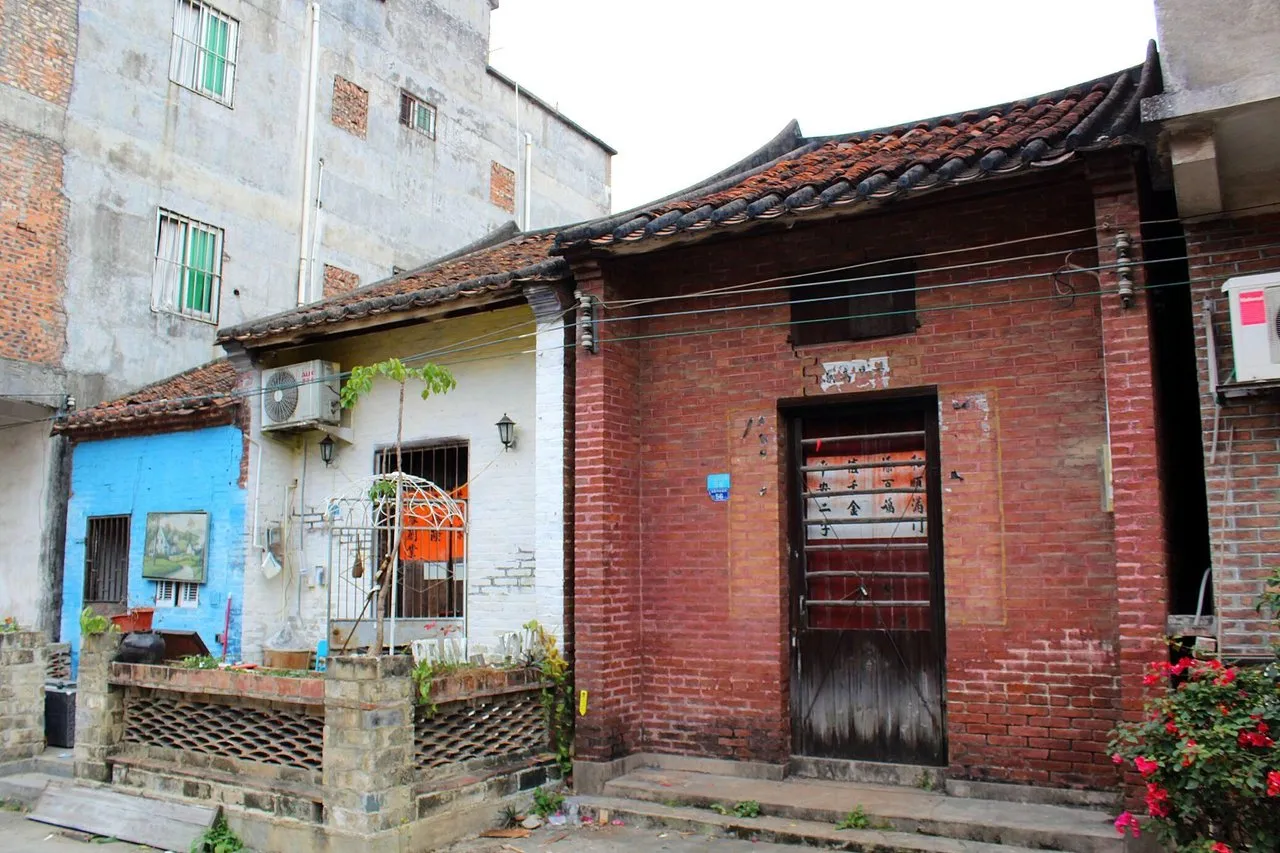
| That's more like it. Still, only the very poor would probably live there, but that already looks a bit better. Note the traditional door on the right. Also interesting how the people in the white house created some kind of terrace for themselves. | So paßt's schon eher. Jedoch leben auch in diesen Gebäuden die wirklich Armen, auch wenn's schon besser aussieht. Man beachte die traditionelle Tür des rechten Gebäudes. Auch interessant, daß die Bewohner des weißen Häuschens sich eine kleine Terrasse gebaut haben. |
|---|---|
| BTW, you can see that they are not actually that poor. A good indicator of poverty in (South-)China is air-conditioning. A building or apartment that has an air-co is usually inhabited by people who are not really poor. More probably they at least belong to the lower middle class or upper working class. | Man kann übrigens sehen, daß die nicht wirklich sehr arm sind. Ein guter Indikator für Armut in (Süd-)China sind Klimaanlagen. Ein Haus oder Appartement mit Klimaanlage wird eher nicht von Leuten bewohnt, die sehr arm sind. Wahrscheinlicher ist, daß sie zumindest zur unteren Mittelklasse oder oberen Arbeiterklasse gehören. |
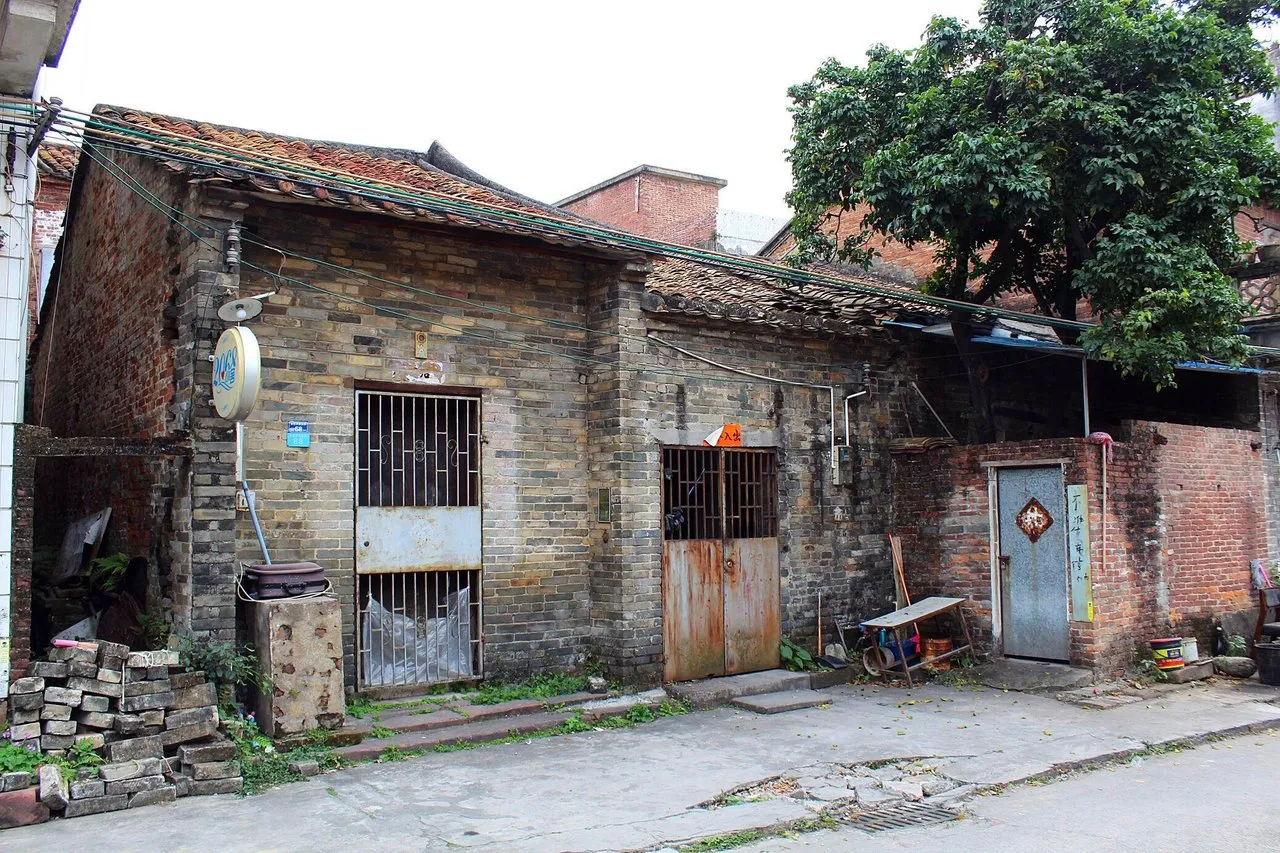
| Canton gets very hot in summer. So, air conditioning is a luxury, but it's one you definitely want to have & will buy, as soon as you can afford it. (Unless you are a cheapskate like me. When I rented a room in Canton City in 2009, a small fan was good enough for me.) | In Kanton wird es im Sommer sehr heiß. Deshalb ist eine Klimaanlage zwar Luxus, aber einer, den man sich auf jeden Fall zulegt, sobald man es sich leisten kann. (Außer man ist ein Geizkragen wie ich. Als ich im Jahr 2009 eine Weile in Kanton-Stadt lebte, habe ich mich mit einem kleinen Ventilator begnügt.) |
|---|
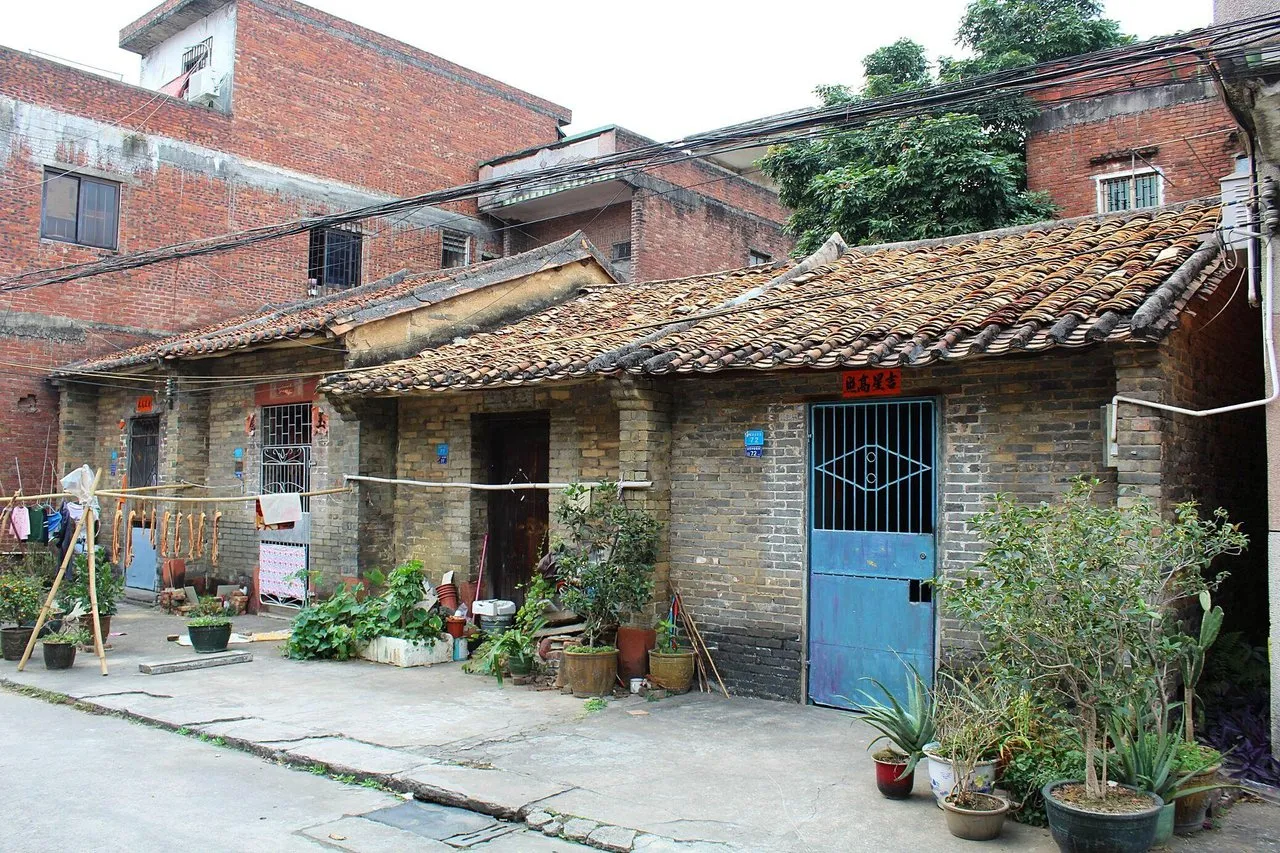
| So, having an air-co doesn't necessarily mean the people living there are wealthy, but the lack of an air-co very much shows poverty. | Eine Klimaanlage bedeutet also nicht unbedingt, daß die Bewohner wohlhabend sind, aber die Abwesenheit einer Klimaanlage zeigt deutlich Armut an. |
|---|---|
| Note above the meat, hanging there to dry. The bigger red-bricked building on the left was one of the few with a car in front. | Man beachte oben das zum Trocknen aufgehängte Fleisch. Das größere Gebäude aus roten Ziegelsteinen war eines der wenigen mit einem Auto davor. |
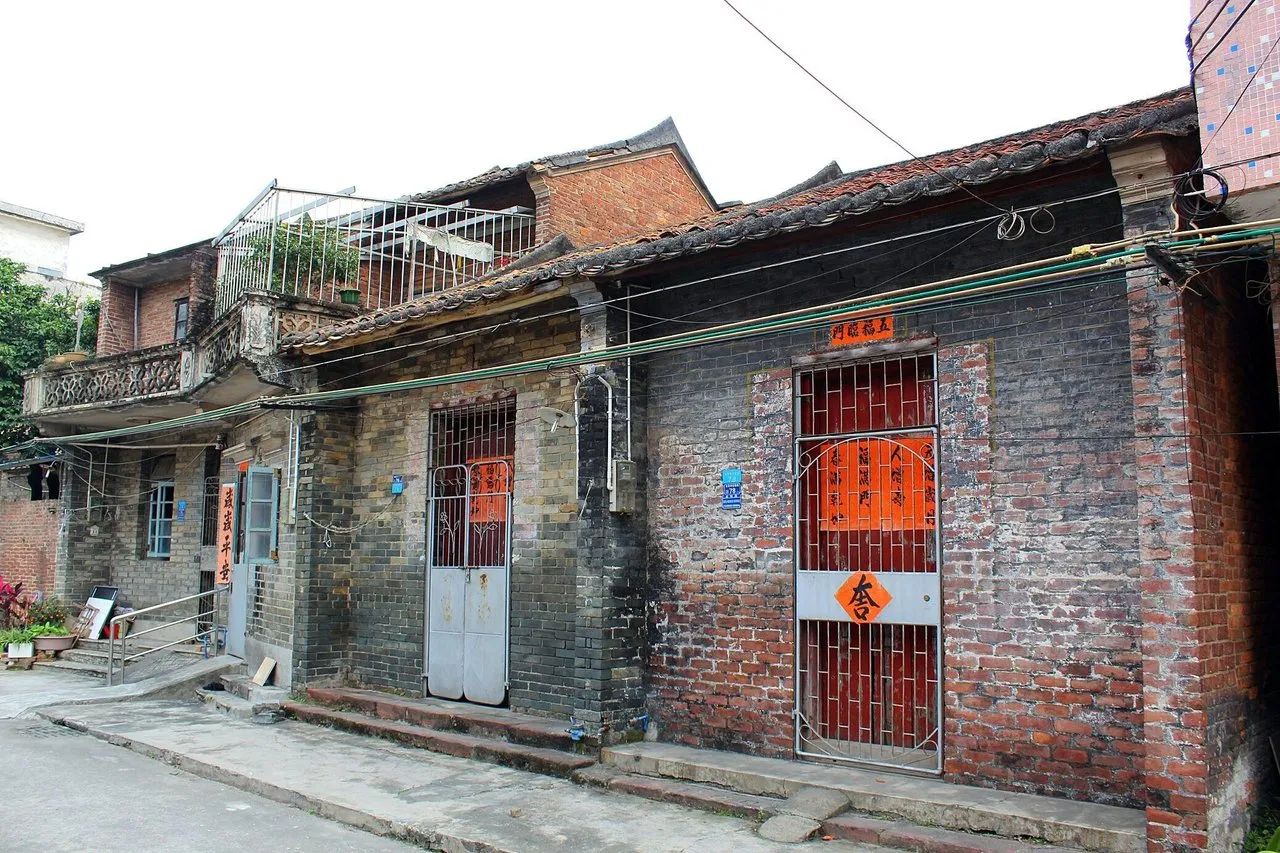
| On the colour of bricks, the rule of thumb seems to be, that older buildings with grey or dark grey bricks are of better quality (ie. the people who built them had more money than average). Red-bricked houses are either so-so or built in more recent times. Yellow bricks are crap. At least in Canton they are normally used for pigsties & stables. If you see them used in human-inhabited buildings, that usually means the people were very poor at the time. (just my interpretation, no sources for that) | Zur Farbe der Ziegelsteine läßt sich sagen, daß die älteren Gebäude aus grauen oder dunkelgrauen Ziegelsteinen von höherer Qualität sind (will sagen, die Leutchen, die sie bauten, hatten überdurchschnittlich viel Geld). Rote Ziegelsteine waren wohl eher Mittelklasse oder stammen aus der jüngeren Vergangenheit. Gelbe sind Mist. Diese wurden zumindest in Kanton normalerweise nur für Viehställe verwendet. Wenn sie für Wohngebäude verwendet wurden, dann fast nur von sehr armen Familien. |
|---|
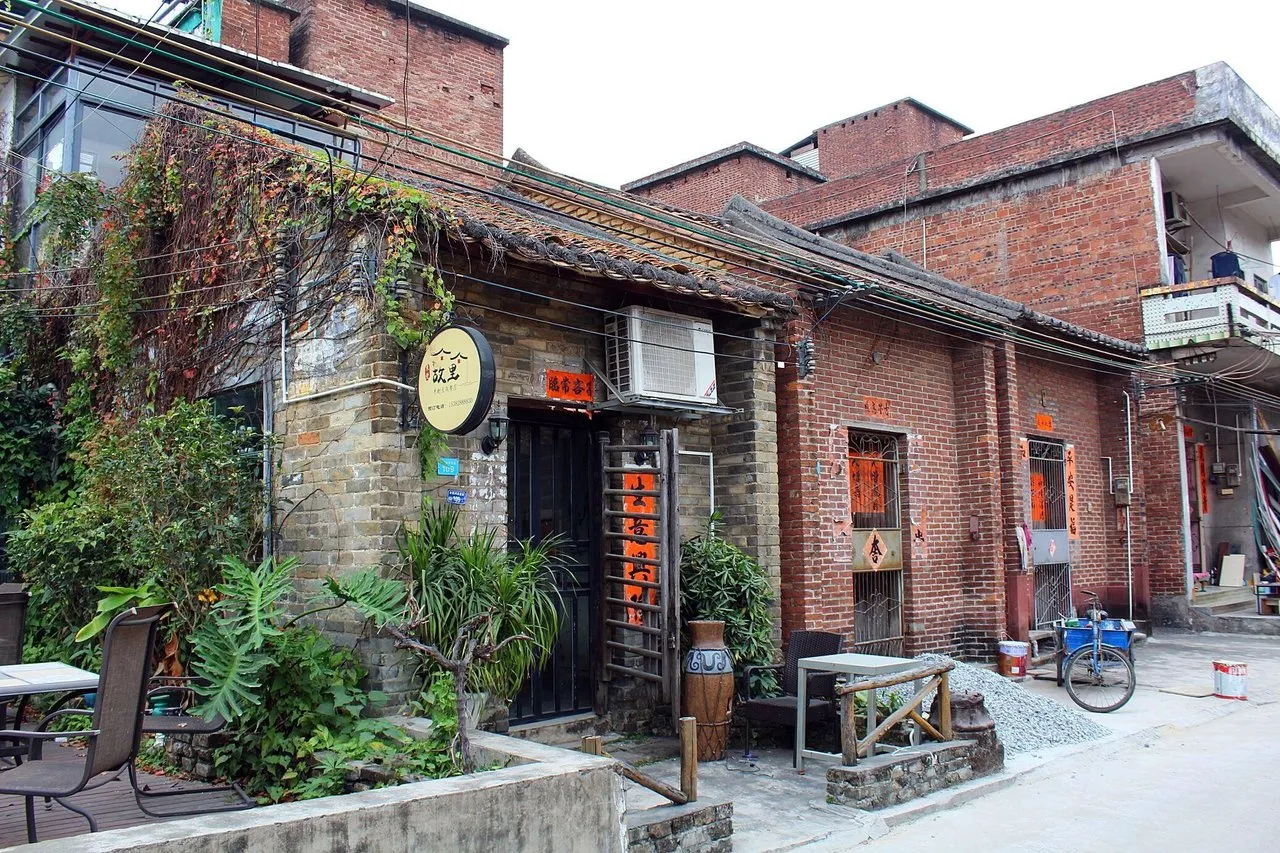
| Walking through the quarter, I met a young Chinese who was interested in photography. He told me, that the community was quite poor, but that there were efforts underway to improve things. They want to open cafes & such, to attract tourists & Chinese hipsters. | Als ich in dem Viertel unterwegs war, begegnete mir ein junger Chinese, der an Fotografie interessiert war. Der bestätigte mir, daß die Gemeinde eher arm war, aber daß versucht werde, die Lage zu verbessern. Man will Cafes & ähnliches eröffnen, um Touristen & chinesische Hipster anzuziehen. |
|---|
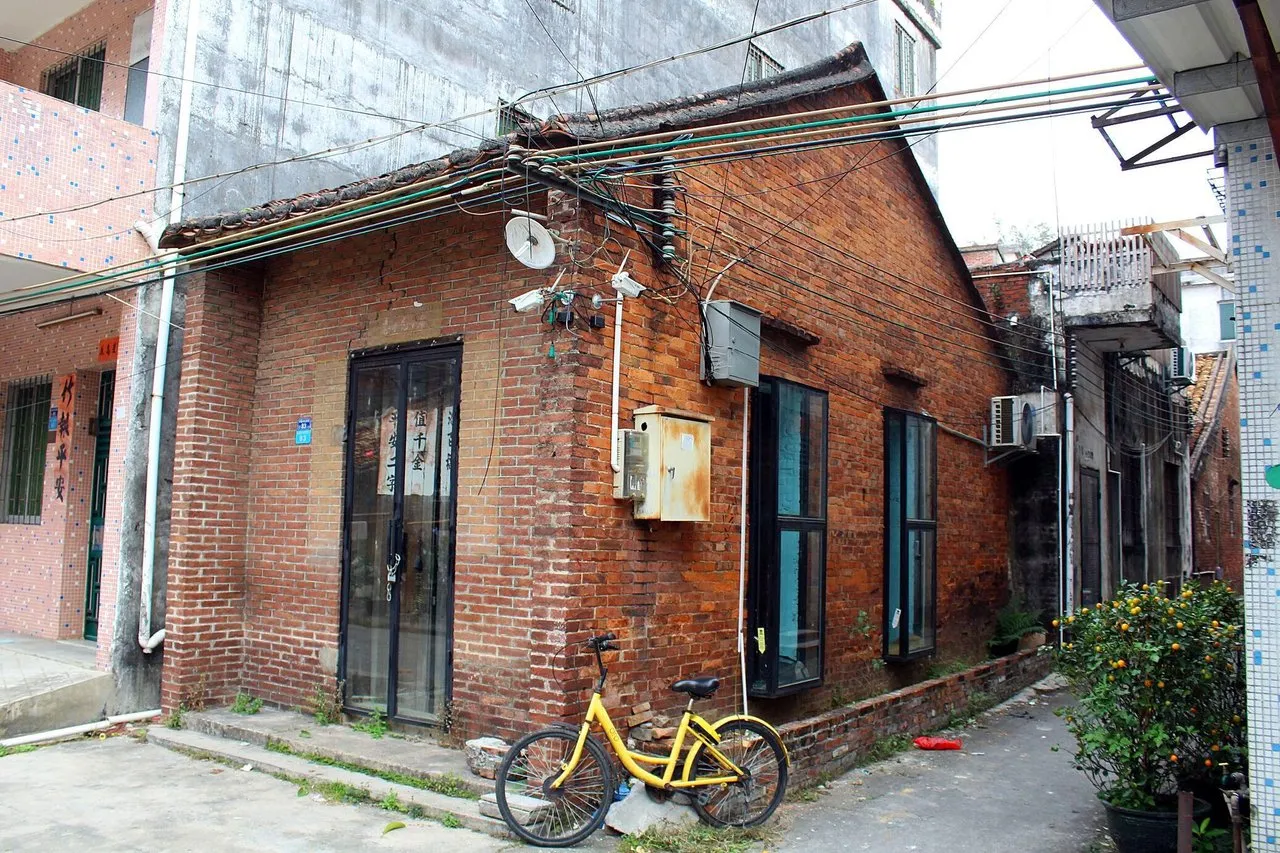
| The 2 images above seem to show such efforts, in which they modernized some of these small buildings. Let's hope, they are successful in their efforts, because else, it's just a matter of time before these small, old buildings will be torn down to make room for some boring high-rises. | Die beiden Bilder oben scheinen solche Versuche zu zeigen, wobei man einige dieser kleinen Gebäude modernisiert hat. Bleibt zu hoffen, daß man dabei erfolgreich ist, denn sonst ist es nur eine Frage der Zeit, bis diese kleinen, alten Häuschen abgerissen werden, um Platz für langweilige Wohntürme zu machen. |
|---|
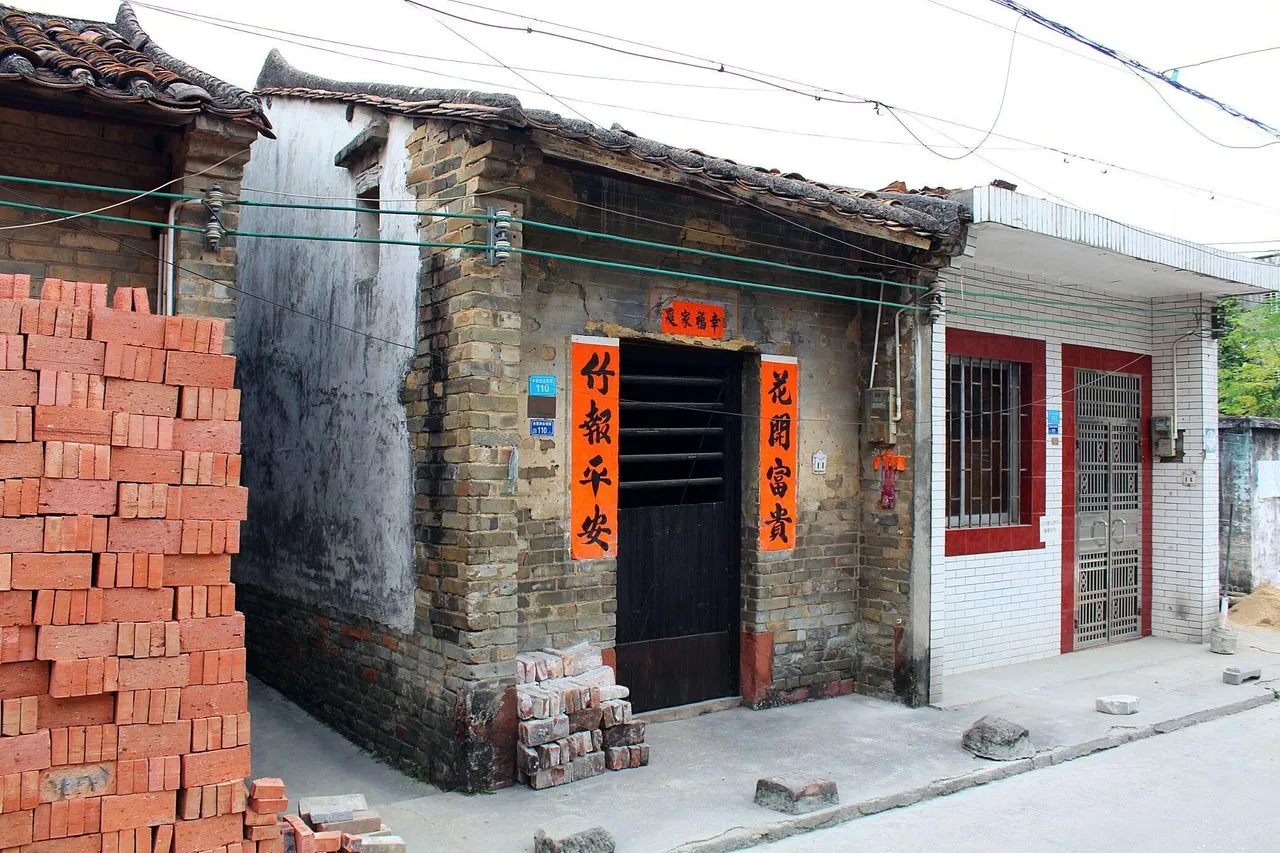
| These buildings may not look like much & it's horrible not to have windows, but there is a certain charm to them. | Diese Häuser sehen nicht nach viel aus & es es schrecklich, keine Fenster zu haben, aber sie haben doch einen gewissen Charme. |
|---|
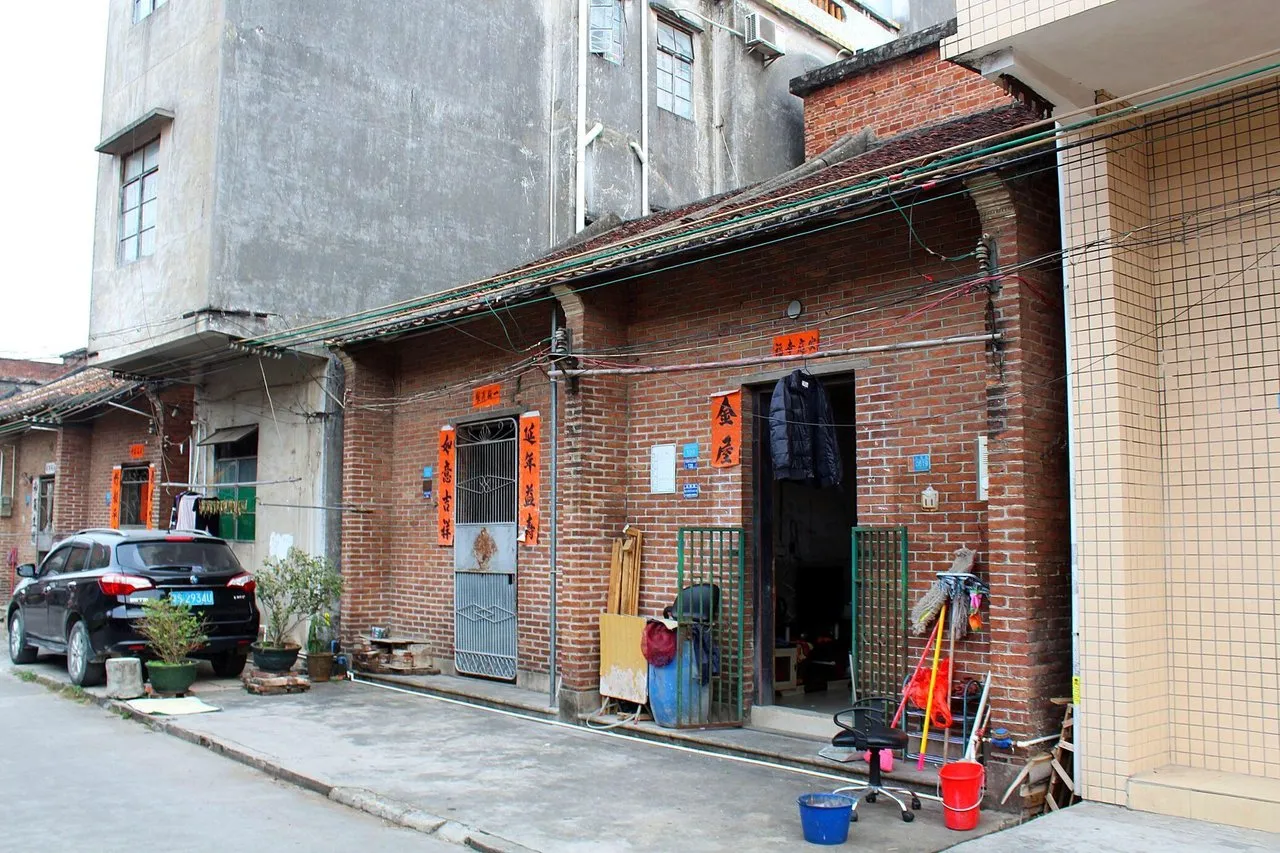
| The above is an example of what happens if someone there earns some wealth. They tore down one of those ugly, but charming small houses & put a grey monster in its place. | Oben sieht man ein Beispiel, was passiert, wenn dort jemand zu Geld kommt. Das alte, häßliche, aber charmante Haus wurde abgeräumt & stattdessen ein graues Monster hingestellt. |
|---|---|
| You should visit these places, as long as they last. Here are some more pics: | Man sollte solche Orte besuchen, solange es sie noch gibt. Noch ein paar Bilder zum Abschluß: |
